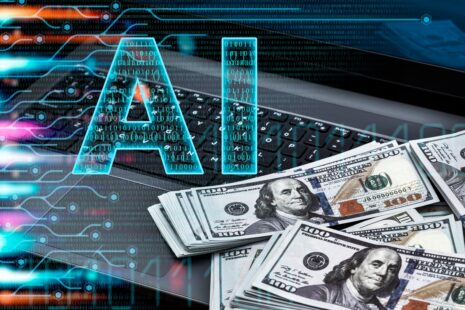AI is set to revolutionize advertising by automating processes, enhancing personalization, and creating more efficient, data-driven campaigns.
How AI Will Disrupt the Advertising Industry
Personalization at Scale
- AI can analyze large datasets to deliver personalized ads tailored to individual preferences, behaviors, and demographics.
- Dynamic creative optimization (DCO) enables AI to tweak ad elements like headlines, images, and calls to action in real time for each viewer.
Programmatic Advertising
- AI powers programmatic ad buying, where ads are purchased and placed automatically inreal-timee.
- Algorithms analyze metrics like user engagement, location, and preferences to decide the best ad placements, increasing cost-effectiveness.
Predictive Analytics
- AI predicts trends, customer behavior, and campaign performance, allowing marketers to adjust strategies proactively.
- Marketers can use predictive insights to allocate budgets effectively and optimize ad spending.
Automation of Creative Processes
- Generative AI tools can create ad content such as images, videos, and copy, reducing production costs and time.
- AI-driven A/B testing refines ads by evaluating variations and selecting the best-performing versions.
Enhanced Targeting
- AI improves targeting accuracy by analyzing consumer data like search history, purchase patterns, and social media interactions.
- It helps advertisers reach niche audiences with high precision, increasing conversion rates.
Conversational Marketing
- AI chatbots and voice assistants facilitate personalized, real-time interactions with potential customers.
- Conversational AI enables brands to engage consumers directly on platforms like messaging apps and voice search.
Fraud Detection and Prevention
- AI algorithms can detect fraudulent activities like bot clicks, fake impressions, and ad placements on irrelevant sites.
- Protecting advertisers from fraud ensures more reliable ROI and reduces wasted spend.
Augmented and Virtual Reality Advertising
- AI integrates AR and VR into ad campaigns, allowing consumers to interact with products in virtual environments.
- Immersive advertising experiences can build stronger emotional connections with audiences.
Content Curation and Recommendation
- AI analyzes user preferences to recommend relevant products or services through ads.
- Recommendation systems like those used by Amazon or Netflix enhance engagement by showcasing tailored content.
Improved Campaign Performance
- AI continuously monitors and adjusts campaigns to maximize performance.
- Tools powered by machine learning can identify underperforming ads and suggest improvements.
Challenges AI Brings to Advertising
- Data Privacy – Heavy reliance on consumer data may raise concerns about privacy and compliance with laws like GDPR.
- Over-Automation – Excessive AI usage might strip ads of human creativity and emotional depth.
- Bias in Algorithms – AI can unintentionally reinforce biases if training data is not diverse.
AI will disrupt advertising by making it smarter, faster, and more customer-centric. Businesses that adopt these tools effectively will gain a significant edge in connecting with audiences innovatively.




